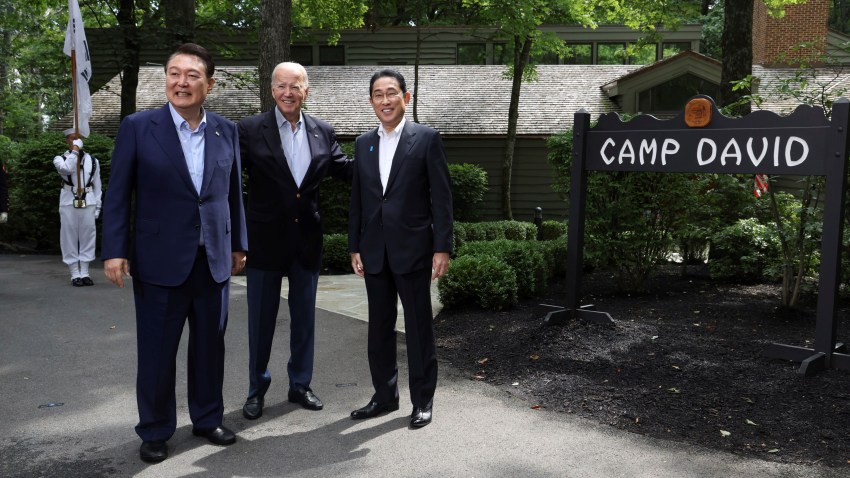In August 2023, U.S. President Joe Biden hosted Japanese Prime Minister Kishida Fumio and South Korean President Yoon Suk Yeol for a summit at Camp David, where they agreed on a framework for trilateral cooperation that was said to have inaugurated a “new era” in relations among the three countries. Biden said that the meeting “made history” and praised his counterparts for their “political courage” in improving ties. Leaving aside the hyperbole, the meeting and its outcomes are significant, but how meaningful they end up being will depend on the three sides’ ability to make full use of the cooperative mechanisms they agreed to implement.
The Camp David Principles, as the framework is known, are a broad set of agreements and initiatives intended to institutionalize cooperation among the three countries. They broadly emphasize “a free and open Indo-Pacific based on a respect for international law, shared norms, and common values,” and strongly oppose “any unilateral attempts to change the status quo by force or coercion.”
Specifically, the three sides agreed to establish a hotline to share information and coordinate responses to “regional challenges, provocations, and threats” affecting their “collective interests and security”; to launch a trilateral working group to coordinate and improve cooperation on challenges like sanctions evasion, cybersecurity and more; and to conduct annual trilateral military exercises. They also announced agreement on deeper cooperation in advanced technologies like artificial intelligence, quantum computing, space and clean energy, and there are plans to expand joint research in science, technology, engineering and math.

